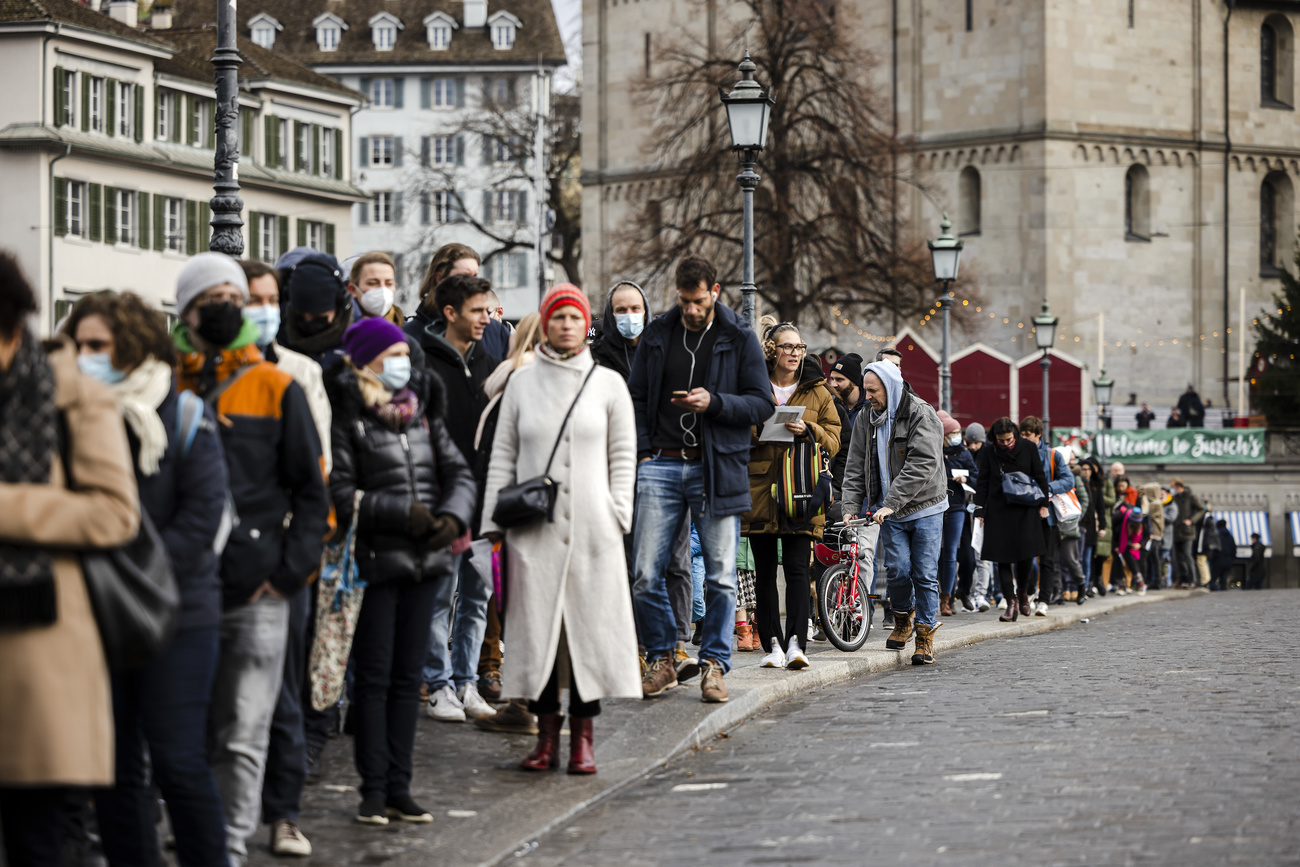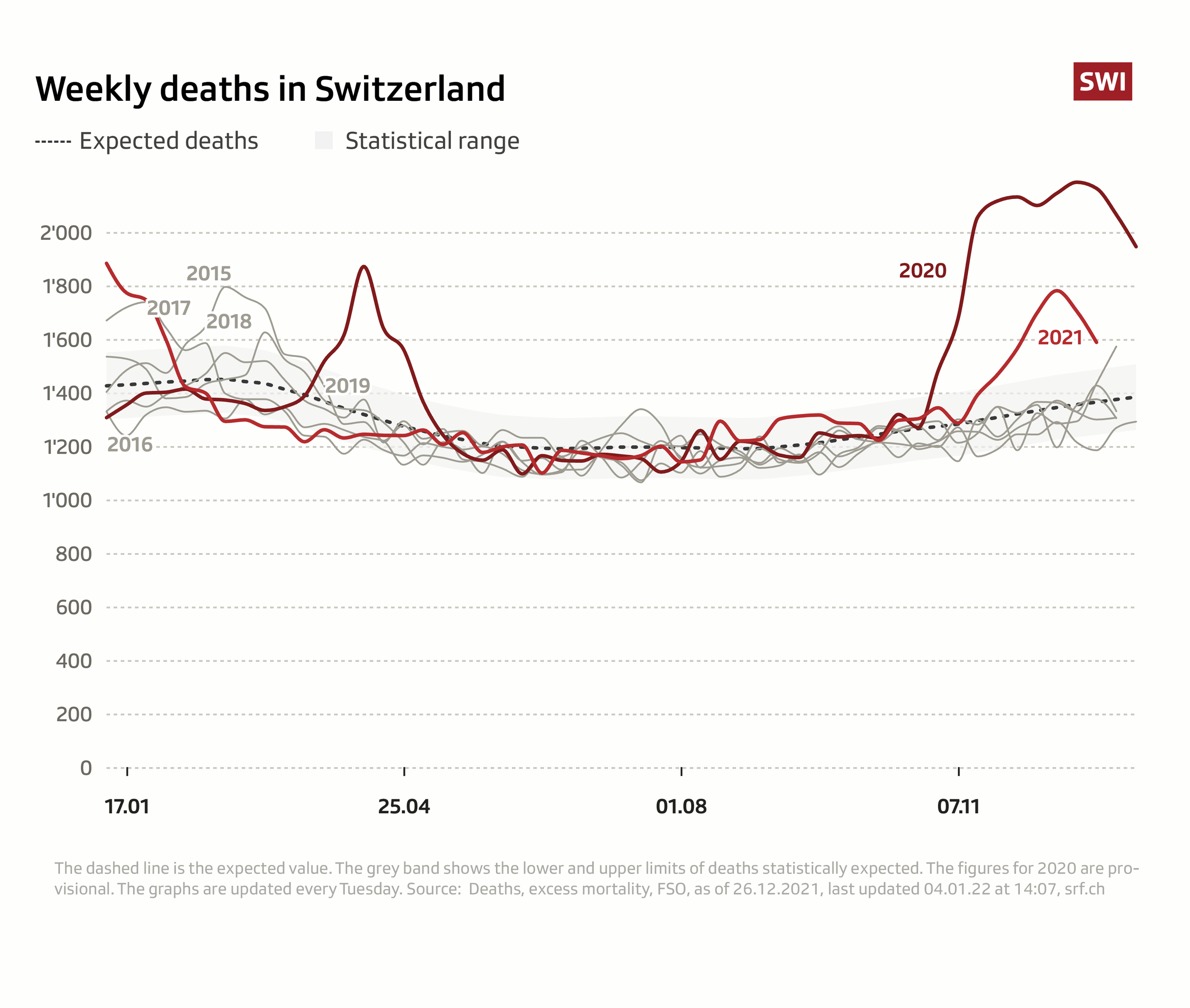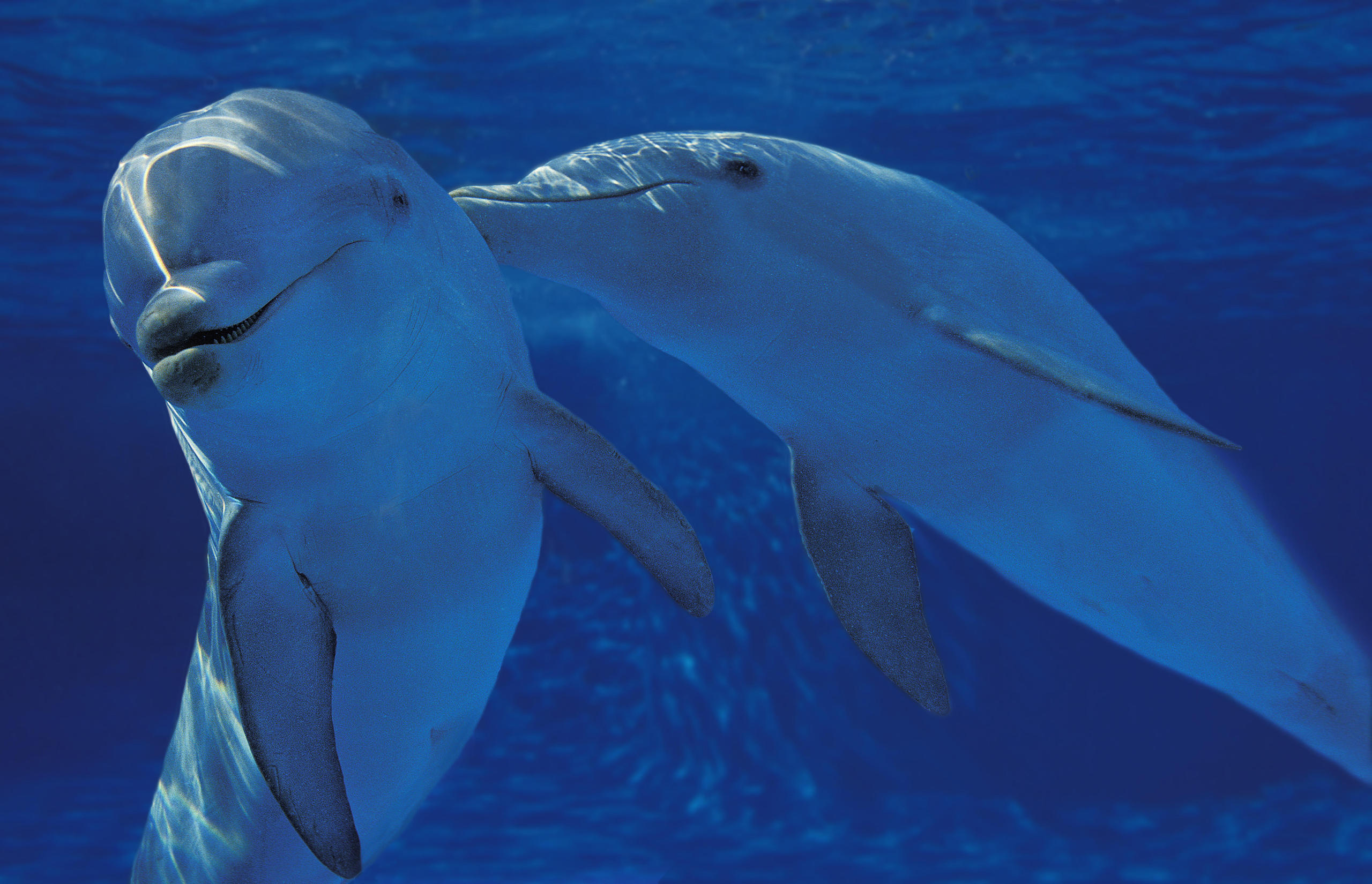
New Year’s resolutions: trust science, learn from nature
In Switzerland, 2021 ended as it did in many countries, with a new wave of Covid-19 infections, mainly due to the Omicron variant. Although the data shows that vaccines protect against severe disease and death, there are still people who view science with skepticism and mistrust.
The New Year began where the old one ended; with rampant viruses, and meteorites threatening to destroy planet Earth. The virus is, of course, SARS-CoV-2, which is inexorably affecting more and more people in my circle of acquaintances. But it is not the only one in circulation.
There is also a virus that causes a violent and lightning-fast intestinal flu and forces its hosts to shuttle between the bed and the bathroom. My companion was struck by it between New Year’s Eve and Day, the very moment that, for some, dictates everyone’s fate for the year…
Meteorites heading for our planet, on the other hand, only exist on the screen for the time being. Over the Christmas break, I watched “Don’t Look Up”, the most talked about film at the moment. The plot is simple: two not-so-well-known astronomers realise that a giant meteorite is about to crash into the Earth, but they are not taken seriously by the media and a US president who is very reminiscent of Donald Trump.
What happens next? I don’t want to spoil the film, which is already one of the most popular on Netflix in Switzerland, but for morale and optimism it might have been better to opt for Christmas classics like “Trading Places” or “Home alone”.
How did your New Year start off? Are more people around you catching Sars-Cov-2? Share your experiences with me!

More
Coronavirus: the latest numbers
Why is anti-vax sentiment widespread in Switzerland?
Adam McKay’s satirical movie “Don’t Look Up” certainly prompts some profound reflections on our society today, which is really characterised by skepticism and mistrust of science. This phenomenon is stronger in the United States and in certain parts of Europe, particularly in German-speaking countries.
How can this be explained? Anti-vax sentiment seems to be closely linked to anti-establishment and populist politics – often rooted in a decentralised structure of power – in countries such as Switzerland, Austria and Germany. Despite its wealth, Switzerland in particular has one of the lowest rates of vaccination in Western Europe.External link
According to Suzanne Suggs, professor of communication at the University of Lugano, this trend is also attributable to the lack of emotion in the way the authorities in these countries communicate with the population. This has made it easier for conspiracy theories to fill the existing ’emotional’ vacuum.
But on closer inspection, the main reason for skepticism about vaccines in German-speaking countries is the population’s cultural inclination towards homeopathy and natural cures, some experts claim. Swiss historian Eva Locher told SWI swissinfo.ch in an interview that this culture stems from movements such as the Lebensreform (Life Reform), which flourished in Germany and Switzerland at the turn of the 19th and 20th centuries.
As well as preaching a lifestyle close to nature and a vegetarian or vegan diet, the Lebensreform sets alternative medicine and anthroposophical models of living, based on the philosophy of Rudolf Steiner, against traditional science.
Especially in the Alps, the German-speaking population trusts fresh air, organic products and herbal teas more than traditional medicines, the doctor Patrick Franzoni recently told the New York TimesExternal link. Franzoni is the deputy director of the Covid Unit in Bolzano, an Italian province with a German-speaking majority and the lowest vaccination rate in the country.
What do you think about skepticism towards vaccines and science? Why do you think it is gaining ground in Switzerland? Do you also believe more in nature and self-healing than in science? Let me know what you think!
Less skepticism and more research into Covid-19 in 2022
However, the skeptical, fringe population of Switzerland was dealt a blow in November when Swiss voters overwhelmingly backed an amendment to the Covid-19 law, which forms the legal basis for the “Covid Certificate”.

More
Voters again endorse Swiss government’s pandemic policy
Data on the Omicron variant and on excess mortality in the last two years (see graphs below) could make the even most ardent skeptics reconsider: it shows that vaccines work because they protect against severe disease and death.
To understand the effectiveness of vaccines, we must not focus on the numbers of infections. Being vaccinated does not mean that you will not get sick, but rather that you are protected from a serious disease.


Meanwhile, scientific research is progressing: four Swiss-based companies will receive state funding to develop a series of new drugs against the coronavirus, which are expected to be available by the end of 2022. They are intended to treat certain symptoms caused by Covid-19 – such as the neuropsychiatric symptoms affecting people with Long CovidExternal link – and to mitigate their duration and severity.

More
What have we learned about long Covid?
Those suffering from belenophobia (fear of needles), on the other hand, will be pleased to hear that Unisanté in Lausanne will be testing a Covid-19 vaccine in the form of a patch on 26 volunteers this month.

More
Coronavirus: the situation in Switzerland
What nature can teach us in 2022
Having faith in science does not mean that nature has nothing to teach us – on the contrary: it can help us to better understand who we are. Just think that in nature, for example, same-sex behaviour has been observed in around 1,500 species, writes my colleague Luigi Jorio: “Individuals of many animal species can change sex during the course of their existence, and some species have tens, if not thousands of different sexes”.
Such is the case with Schizophyllum commune, a fungus that has 23,328 different sexes, which are known as mating types. Luigi interviewed Christian Kropf, biologist and curator of the exhibition ‘Queer – Diversity is in our nature’External link, which is currently on display at the Natural History Museum in Bern.

More
Exhibition shows how being queer is perfectly natural
If you haven’t seen the exhibition yet, I recommend you do so. On your own, with your children or even with grandparents, friends and relatives. Recognising that nature is a splendid spectacle of diversity is the first step towards respecting and loving ourselves and others.
What better way to start the new year?
Do you have comments, remarks or questions about the latest news from the world of science? Let’s talk about it over a (virtual) coffee.

In compliance with the JTI standards
More: SWI swissinfo.ch certified by the Journalism Trust Initiative





























You can find an overview of ongoing debates with our journalists here . Please join us!
If you want to start a conversation about a topic raised in this article or want to report factual errors, email us at english@swissinfo.ch.